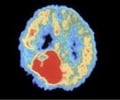
The findings suggest that as far as our immune systems are concerned, not just any bug collection would do.
"Human microbe-colonized mice have gut immune systems that look essentially identical to germ-free mice," Dennis Kasper of Harvard Medical School said.
"Even though they have the same number and diversity of bacteria, their immune systems don't develop properly," he said.
The findings come at a time when the importance of the microbiome, which is the totality of microbes in an environment, for health and well being is becoming increasingly clear.
The researchers claimed that the conclusions might have implications for understanding the health consequences of our shifting diets, our excessive use of antibiotics, and our modern-day obsession with showers and antibacterial household cleansers.
Advertisement
Researchers noted that our relationship with our gut micro biome today may be threatened by a combination of heavily processed foods, frequent treatment with antibiotics, and advances in hygiene.
Advertisement
Mice with their normal complement of microbes were also found to be better than human microbe-colonized mice at fighting off a Salmonella infection. The scientists concluded that, "a host-specific microbiota appears to be critical for a healthy immune system."
Although modern medicine and technology may offer alternative ways to fight ailment, Kasper revealed that, "the current prevalence of autoimmune diseases-such as asthma, multiple sclerosis, and inflammatory bowel disease-may be, at least in part, the consequence of the increasing vulnerability of the co-evolved human-microbe relationship."
This study has been published in the journal Cell.
Source-ANI















